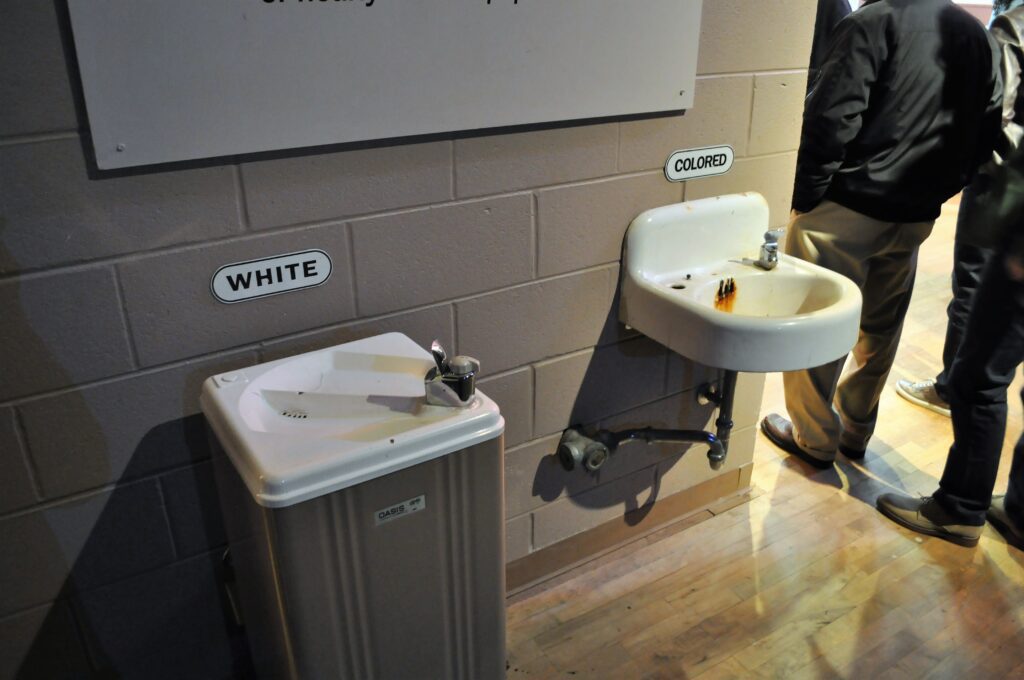P. Ravi Shankar
Kuala Lumpur, Malaysia
 |
| Segregated water fountains. Birmingham Civil Rights Institute. U.S. Army photo. |
The Tuskegee Syphilis study was a dark chapter in United States history. In 1932, the United States Public Health Service (USPHS) began to study the natural history of progression of syphilis. The study was originally called the “Tuskegee study of untreated syphilis in the negro male” and is now referred to as the “USPHS syphilis study at Tuskegee.” It involved 600 black men who were not informed of the real aims of the study and were only told that they had “bad blood,” a term used for a variety of ailments. They received free medical exams, free hot meals, and burial insurance. When penicillin became widely available in 1943, the men were not offered it as a treatment for syphilis. The study continued for several decades, and the participants died either from syphilis or of natural causes. A press report in 1972 led to an investigation and the eventual end of the study.
A movie on the Tuskegee syphilis study is told from the perspective of a small-town nurse, Eunice Evers, who assists in conducting the study and is troubled by its ethics. However, she persuades many of the men, some of whom trust her as her close friends, to join.1 The men were provided sham treatments of mercury rubs and placebos. These continued even after penicillin was established as a treatment for syphilis.
Racial discrimination in the South is highlighted throughout the movie. In one instance, separate drinking water fountains for whites and blacks are shown. No informed consent was obtained, and the experiments continued for nearly four decades. Worse still, when one of the study participants fights in World War II, is treated with penicillin, and is cured, he finds that none of the nearby hospitals will treat the other study participants, as they all have been placed on a no-treatment list.1 The film portrays well the helpless situation of these African Americans. Over six decades after the study began, a Senate investigation led President Bill Clinton to offer a full apology that it had ever been conducted.
This movie’s implications reach beyond just the history of the US. Many clinical trials are now done in developing nations, and the protection offered to subjects may be weaker than that offered in developed nations. Most trials in developing nations are conducted and led by researchers from developed nations, and the populations tested can be vulnerable due to illiteracy and poverty.3 Especially vulnerable populations in such countries also may be induced to participate without informed consent and full disclosure for the sake of monetary compensation; further challenges to research among developing countries also lie in limited research infrastructure, fragmented healthcare systems, and limited numbers of investigators.3 Miss Evers’ Boys raises important and disturbing ethical questions for students, practitioners, researchers, and the public alike.
References
- “Miss Evers’ Boys.” Wikipedia. https://en.wikipedia.org/wiki/Miss_Evers%27_Boys.
- Sargent, Joseph, dir. Miss Evers’ Boys. 1997; HBO.
- Devasenapathy, Niveditha, Kavita Singh, and Dorairaj Prabhakaran. “Conduct of clinical trials in developing countries: a perspective.” Current Opinion in Cardiology. 2009;24(4):295-300.
DR. P. RAVI SHANKAR is a medical doctor, member of the ORCID Research Advisory Council (ORAC), and a member of the World Association of Medical Editors (WAME). He has been published 750 times in various journals, written twelve book chapters in seven books, and has reviewed over 800 research papers. He was among the top 2% of scientists globally through 2019–2021. His areas of research are the health humanities, rational use of medicines, pharmacovigilance, and small-group learning, among others. He enjoys traveling and is a creative writer and photographer.

Leave a Reply